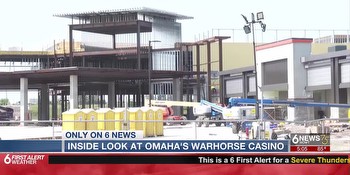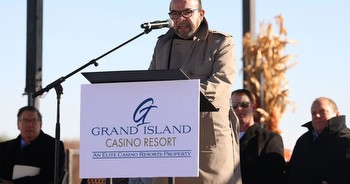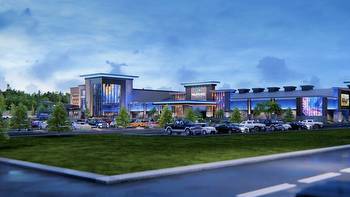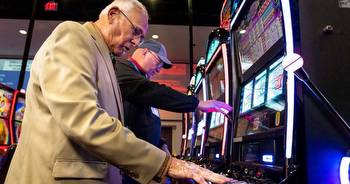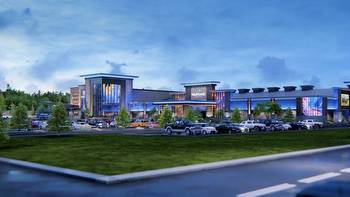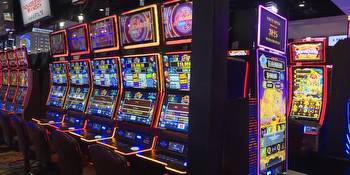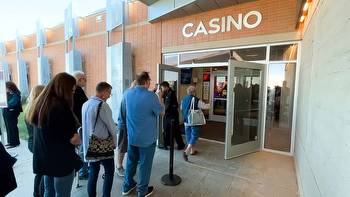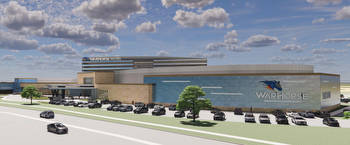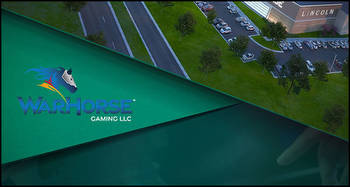Nebraska's first casino has already sent nearly $800,000 to property tax relief
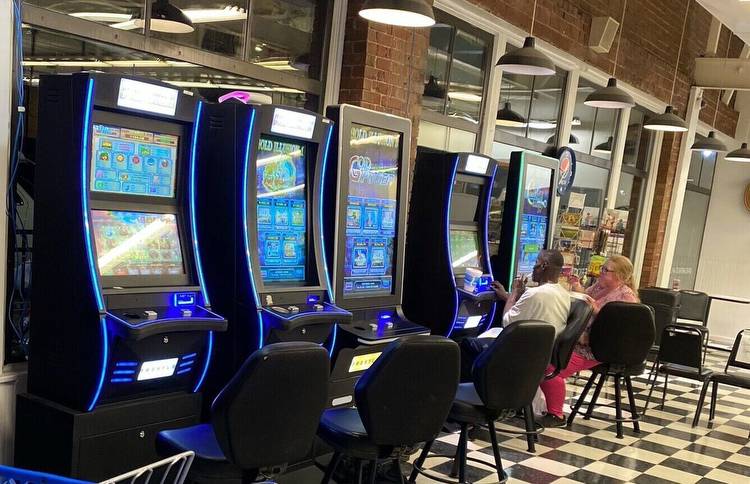
Tax revenue realized after first five weeks of operation of WarHorse casino in Lincoln
LINCOLN — Nebraska’s first gambling casino has contributed nearly $800,000 to a state property tax relief fund so far, including $597,854 during the month of October, a state report indicated Monday.
And officials with the WarHorse Casino expect that gaming tax revenues will steadily grow as they begin advertising and marketing the temporary facility at the Lincoln Race Course on the southwest edge of Lincoln.
“We’re really pleased at the way it’s been received,” said Lynne McNally, the CEO of the state’s horsemen’s association. “It was very important to us to start contributing to that property tax relief fund.”
Revenue projected higher
Lance Morgan, the president and CEO of Ho-Chunk Inc., which operates the WarHorse Casino, said Monday he thinks that gaming revenue for property tax relief will exceed initial estimates and be around $100 million a year.
Lincoln, for instance, doesn’t have the casino gaming tradition of Omaha, which has had legalized casinos in nearby Council Bluffs for years, so the opportunity for growth in the Capital City is much greater, according to Morgan.
“Lincoln has incredible potential,” he said. “And we’ve just scratched the surface.”
Reducing Nebraska’s long-griped-about property taxes was one of the leading selling points for legalizing gambling casinos, which voters approved in 2020.
Supporters projected that $45.5 million a year would be generated for property tax relief, according to the Omaha World-Herald. An estimate from the fiscal office of the Nebraska Legislature was higher, projecting the property tax relief take at $91 million by 2022-23 if six casinos were open.
70% to property tax relief
Casinos are required to pay 20% of their gross gambling revenue in state gaming taxes, with 70% of that money going to the state’s long-running Property Tax Credit Fund. That fund reduces a portion of local property tax bills.
Another 25% of gaming taxes are split evenly between the host county and host city for a casino.
In the gaming revenue report released Monday by the Nebraska Racing and Gaming Commission, Lancaster County and the City of Lincoln received about $143,000 each since the WarHorse Casino opened Sept. 24.
Gaming tax has been steady
Tom Sage, the executive director of the Nebraska Racing and Gaming Commission, said he had no expectation of how much the new casino would generate. But, he said, the total gaming taxes paid so far have held steady at between $150,000 and $200,000 per week.
Revenue has been limited, Sage said, by space. Warhorse could fit only 433 slot machines in its temporary casino, inside a former simulcast facility, and it has no blackjack tables or other table games.
That number won’t change for nearly two years, when a new, $200 million casino complex is opened in Lincoln.
A temporary casino at Omaha’s Horsemen’s Park racetrack, with 800 slot machines, isn’t expected to be open for a year.
Nebraska’s next casino to open will probably be at Grand Island’s Fonner Park, Sage said, by the end of this year.
Both Morgan and McNally said there was no advertising when WarHorse first opened in Lincoln due to concerns about overloading the facility.
No money for purses yet
No revenues have yet to be directed to increase purses for Thoroughbred horse races — another selling pitch for legalizing casino gambling. McNally said that was because some expensive upgrades were needed at the Lincoln Race Course track.
They include buying 155 acres of additional property, building more barns for horses, and completing a $2.5 million renovation of the racetrack’s surface. McNally said the base of the track had large stones in it.
The board of directors of the Nebraska Horsemen’s Benevolent and Protective Association, she said, will ultimately determine how much money is directed to bolster purses, which is intended to attract more horses by more richly rewarding trainers and owners.
Monday’s report is the first to contain a full month’s worth of gaming tax revenue.
It indicated total gaming tax revenue of $854,077.44 for the month of October, with 70%, or $597,854, going into the Nebraska Property Tax Relief Fund. The Nebraska General Fund and the Compulsive Gaming Assistance Fund each got 2.5% each, or $21,352.
Sage said the report provides “a more complete picture” of gaming tax revenue that will help us gauge future tax revenues.
Our stories may be republished online or in print under Creative Commons license CC BY-NC-ND 4.0. We ask that you edit only for style or to shorten, provide proper attribution and link to our web site.








